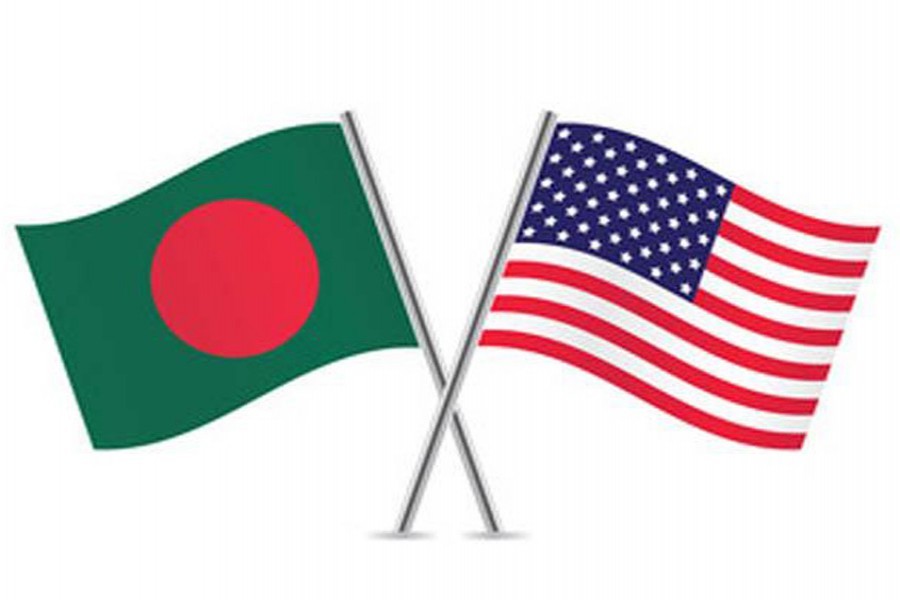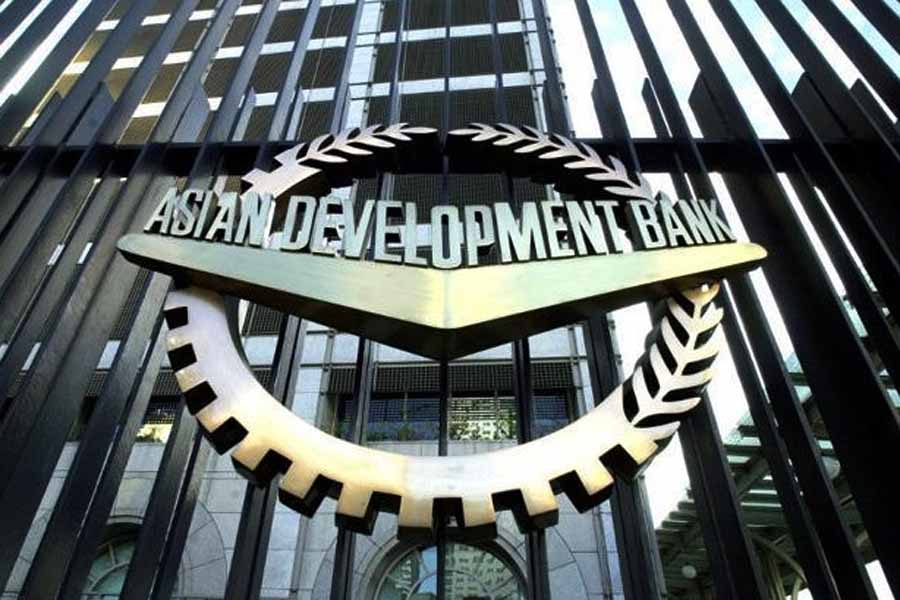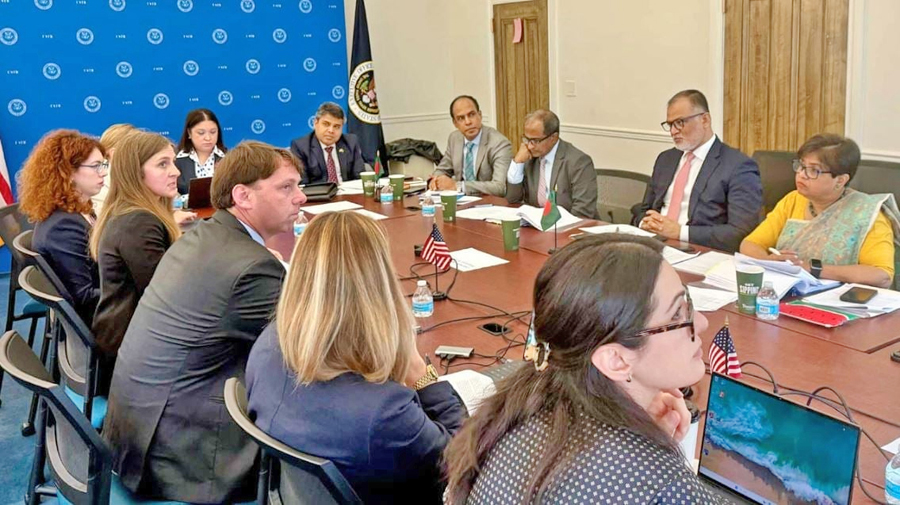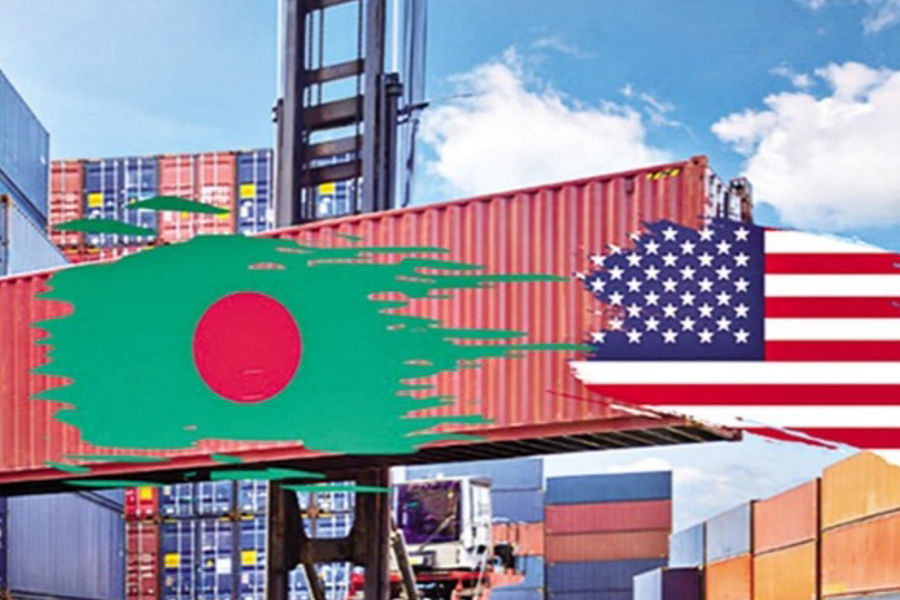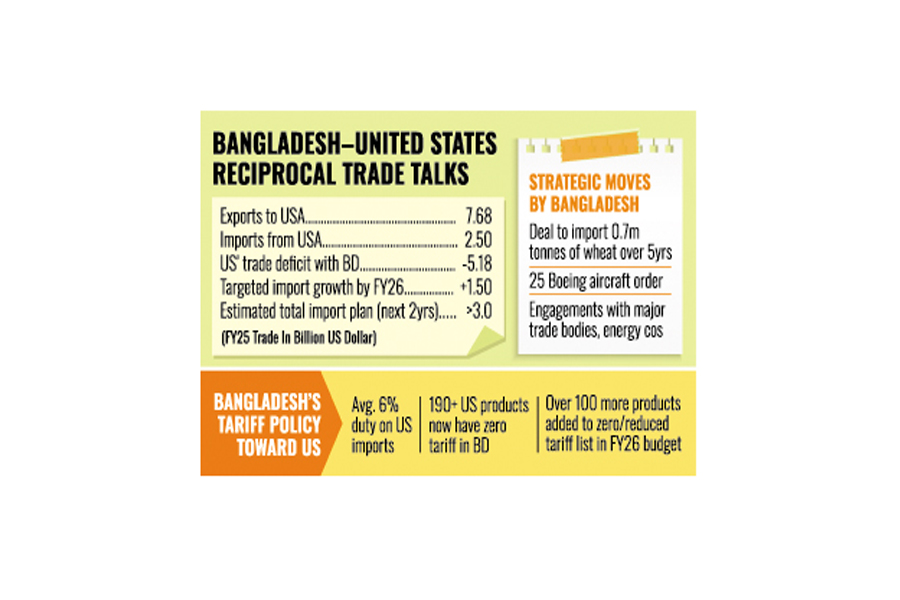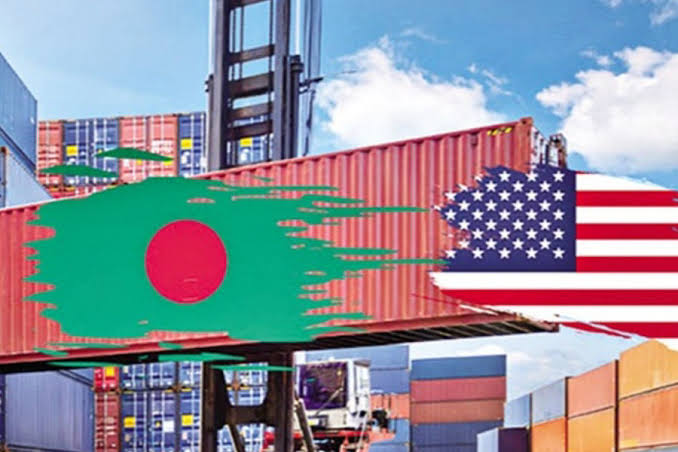Saif
Senior Member
- Messages
- 17,481
- Likes
- 8,438
- Nation

- Residence

- Axis Group

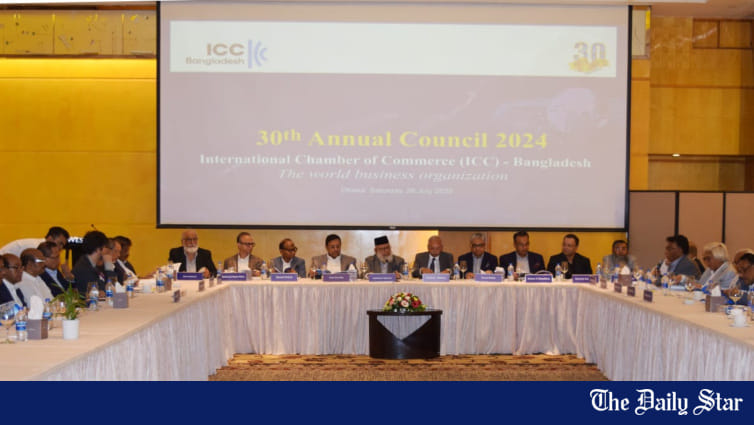
Form a task force for fairer trade talks with US: ICCB
The chamber held its 30th annual council in Dhaka
Form a task force for fairer trade talks with US: ICCB
The chamber held its 30th annual council in Dhaka

The government should form a task force under the commerce ministry to negotiate fairer trade terms with the Trump administration and ensure continuity of access for Bangladesh's exports to the American market, the International Chamber of Commerce–Bangladesh (ICCB) said today.
The suggestion comes as the government is set to resume the third and final round of tariff negotiations with the United States Trade Representative on July 29, in its efforts to secure a much lower tariff than the 35 percent expected to take effect from August 1, unless a deal is reached.
Google News LinkFor all latest news, follow The Daily Star's Google News channel.
The proposed tariff on Bangladesh's exports to the US could severely affect garment exports and jobs, the ICCB said in a statement following its 30th annual council held in Dhaka.
ICCB President Mahbubur Rahman presented a comprehensive report on the evolving global and national economic landscape and its implications for Bangladesh.
The ICCB said the global backdrop remains unstable—marked by the Red Sea crisis, ongoing wars in Ukraine and the Middle East, and a resurgence of economic nationalism, especially following the return of Donald Trump to the US presidency.
Inflationary pressures and protectionist policies risk fragmenting global supply chains—an alarming trend for developing economies like Bangladesh.
"In this context, Bangladesh's economy faces significant headwinds," it said.
"A major concern is the fragile state of Bangladesh's financial sector," said the ICCB, citing high default loans, which rose to roughly one-fourth of the total outstanding loans in March 2025.
The ICCB council also highlighted several key challenges, including energy security and fiscal pressure.
It said rising costs from increased reliance on imported fossil fuels and currency depreciation require urgent domestic exploration and investment in renewables.
With a tax-to-GDP ratio below 10 percent, revenue mobilisation remains weak.
"The restructuring of the National Board of Revenue is expected to improve efficiency and fiscal space."
The chamber said Bangladesh faces serious risks from floods, droughts, and salinity intrusion due to climate change.
Moreover, foreign direct investment remains far below regional peers such as Vietnam.
"Export reliance on garments must be reduced by promoting sectors like pharmaceuticals, agro-processing, and IT."
The ICCB urged swift action to strengthen national cybersecurity infrastructure and regulation.
The chamber also addressed the implications of Bangladesh's planned graduation from least developed country status by November 2026.
The country risks facing tariffs of up to 11.5 percent in major markets such as the European Union and the UK, the chamber said, emphasizing the importance of a transition strategy to safeguard export competitiveness and maintain foreign investment flows.
High Commissioner of Brunei Darussalam Haji Haris Bin Haji Othman, Ambassador of Myanmar U Kyaw Soe Moe, Chargé d'Affaires of Argentina Maximiliano Romanello, and Senior Economic Officer of the Asian Development Bank Barun Kumar Dey attended the council meeting as special guests.
The chamber held its 30th annual council in Dhaka
The government should form a task force under the commerce ministry to negotiate fairer trade terms with the Trump administration and ensure continuity of access for Bangladesh's exports to the American market, the International Chamber of Commerce–Bangladesh (ICCB) said today.
The suggestion comes as the government is set to resume the third and final round of tariff negotiations with the United States Trade Representative on July 29, in its efforts to secure a much lower tariff than the 35 percent expected to take effect from August 1, unless a deal is reached.
Google News LinkFor all latest news, follow The Daily Star's Google News channel.
The proposed tariff on Bangladesh's exports to the US could severely affect garment exports and jobs, the ICCB said in a statement following its 30th annual council held in Dhaka.
ICCB President Mahbubur Rahman presented a comprehensive report on the evolving global and national economic landscape and its implications for Bangladesh.
The ICCB said the global backdrop remains unstable—marked by the Red Sea crisis, ongoing wars in Ukraine and the Middle East, and a resurgence of economic nationalism, especially following the return of Donald Trump to the US presidency.
Inflationary pressures and protectionist policies risk fragmenting global supply chains—an alarming trend for developing economies like Bangladesh.
"In this context, Bangladesh's economy faces significant headwinds," it said.
"A major concern is the fragile state of Bangladesh's financial sector," said the ICCB, citing high default loans, which rose to roughly one-fourth of the total outstanding loans in March 2025.
The ICCB council also highlighted several key challenges, including energy security and fiscal pressure.
It said rising costs from increased reliance on imported fossil fuels and currency depreciation require urgent domestic exploration and investment in renewables.
With a tax-to-GDP ratio below 10 percent, revenue mobilisation remains weak.
"The restructuring of the National Board of Revenue is expected to improve efficiency and fiscal space."
The chamber said Bangladesh faces serious risks from floods, droughts, and salinity intrusion due to climate change.
Moreover, foreign direct investment remains far below regional peers such as Vietnam.
"Export reliance on garments must be reduced by promoting sectors like pharmaceuticals, agro-processing, and IT."
The ICCB urged swift action to strengthen national cybersecurity infrastructure and regulation.
The chamber also addressed the implications of Bangladesh's planned graduation from least developed country status by November 2026.
The country risks facing tariffs of up to 11.5 percent in major markets such as the European Union and the UK, the chamber said, emphasizing the importance of a transition strategy to safeguard export competitiveness and maintain foreign investment flows.
High Commissioner of Brunei Darussalam Haji Haris Bin Haji Othman, Ambassador of Myanmar U Kyaw Soe Moe, Chargé d'Affaires of Argentina Maximiliano Romanello, and Senior Economic Officer of the Asian Development Bank Barun Kumar Dey attended the council meeting as special guests.

